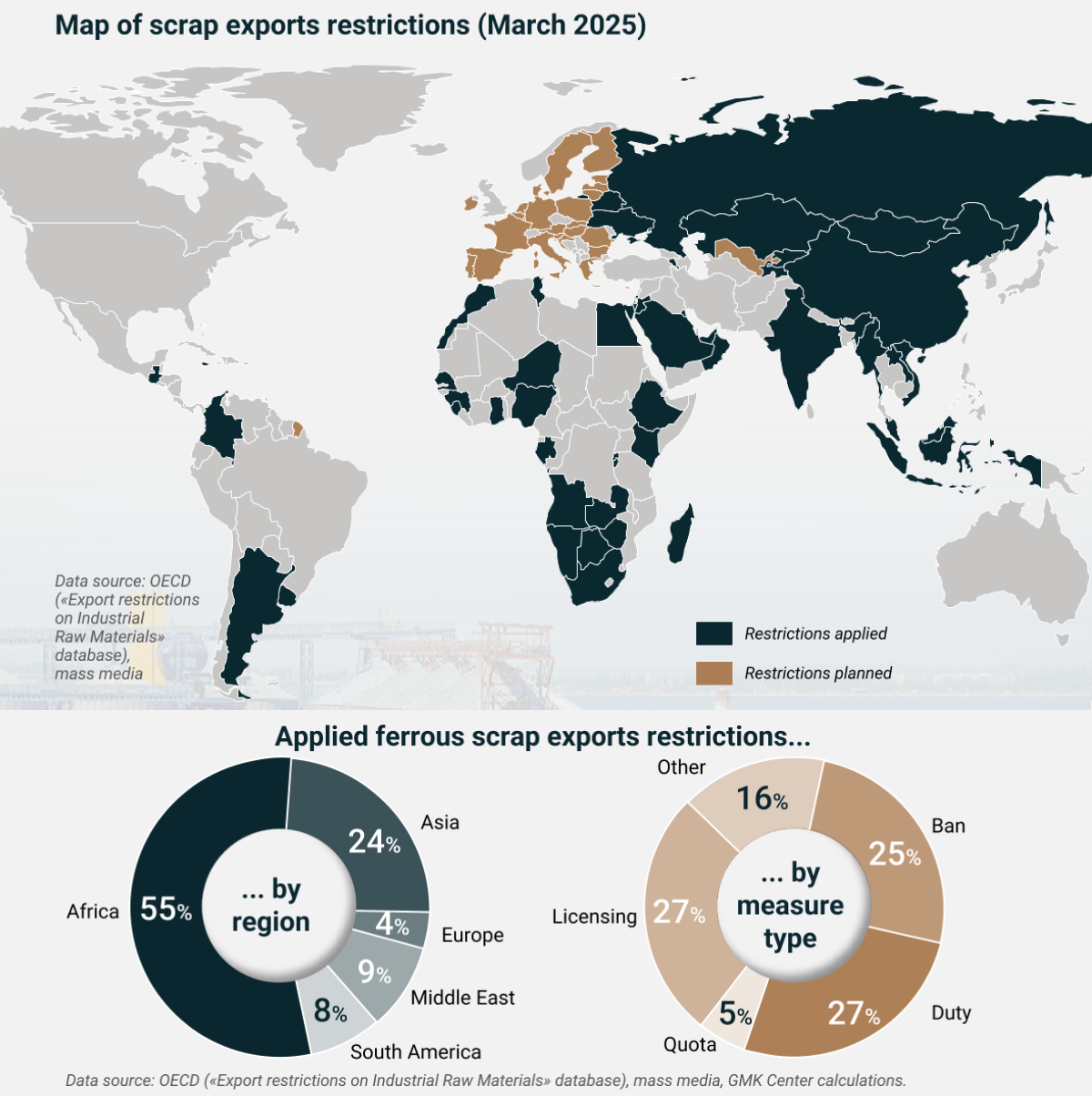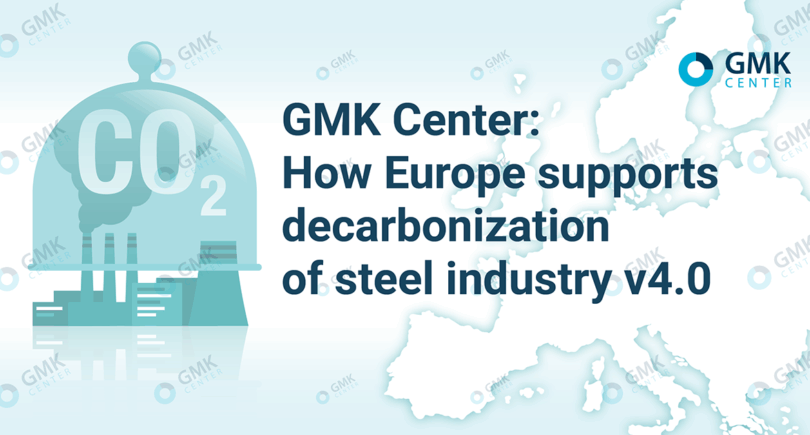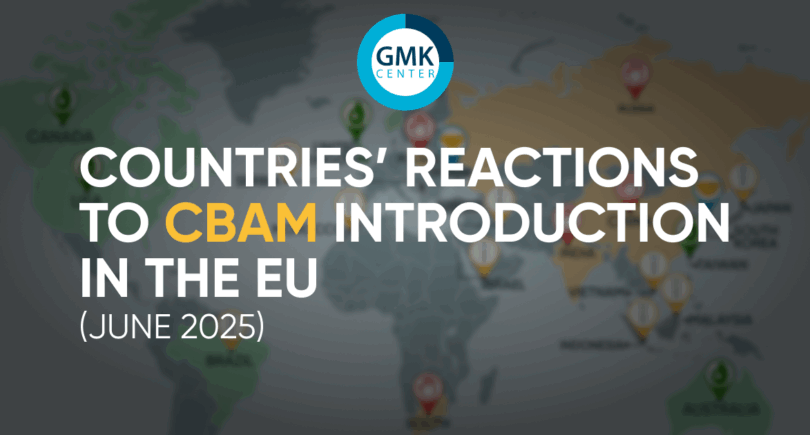
Infographics scrap export 2586 28 April 2025
38% of them introduced partial or full ban
Restricting scrap exports is becoming a popular policy tool considering limited scrap availability and increasing demand for scrap amid decarbonization of steel industry. As of March 2025, 48 countries globally have introduced 75 restrictions on scrap exports. So, it is usual when one country has more than one scrap exports restriction.
The full text of GMK Center’s study “Restrictions on Scrap Exports in the World 2025” is available here.
For example, Burundi has banned scrap exports outside the East African Community, while remaining supplies are subject to export duty. Similar situation is observed in Kazakhstan which banned scrap exports outside Eurasian Economic Community and left export duty for other supplies.
Even the EU could have more than one export restriction for scrap. In March 2024 the European Council adopted changes to Waste Shipment Regulation, which limit exports of non-hazardous waste, including scrap, to non-OECD countries. The EU Steel and Metal Action Plan approved in March 2025 envisaged that European Commission will consider additional scrap export restrictions by 3Q 2025.
27% of the restrictions introduced are duties. Licensing procedures have the same share. Duties are considered to be quite flexible measures, so they are used more often than export ban (25% of introduced restrictions). However, 38% of countries which restricted scrap exports introduced partial or full export ban.
In practice, restrictions on scrap exports are in place for a long time – their lifting is not a common situation. Countries are extending restrictions for a new period or replacing measures with others. For example, in January 2024 United Arab Emirates introduced export duties instead of ban on scrap exports.
There are different reasons for introduction of scrap exports restrictions. First of all, countries want to secure enough scrap supplies for domestic needs, especially considering importance of scrap for decarbonization of steel industry. Affordable scrap prices are necessary condition for supporting competitiveness of domestic “green” steel industry. Introduction of scrap exports restriction can be also mirror measure to level the playing field with countries that have already introduced similar trade barriers.




